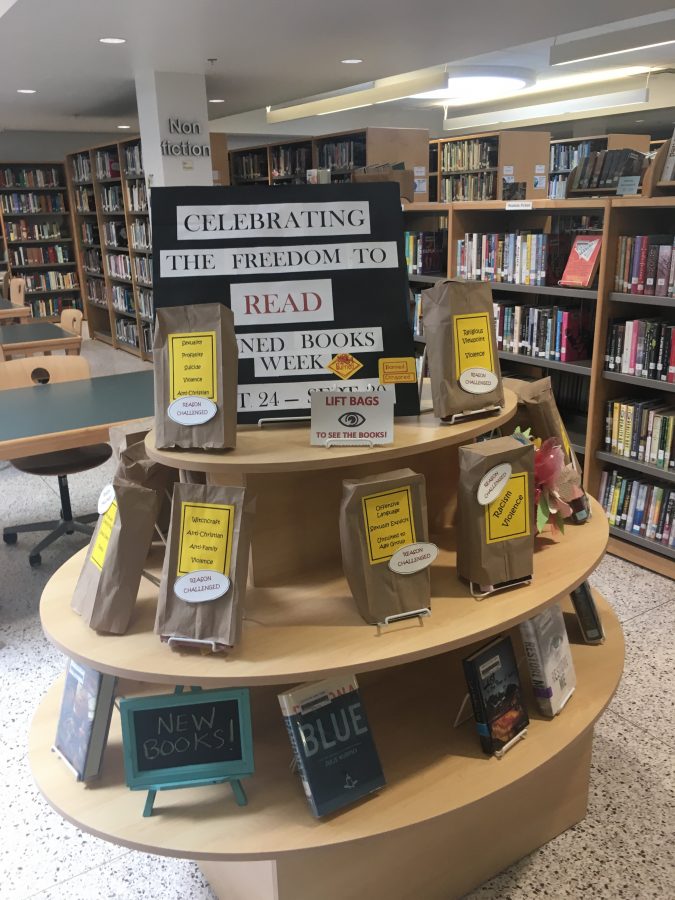Banned Books Restrict Students’ Freedom to Read
October 19, 2018
Last month, the Fauquier High School Library had an exhibit on banned books, encouraging people to read freely. This was to show that everyone has the freedom to read what they want unchallenged. On the exhibit there were multiple “Banned or Unsuitable” books from the American Library Association’s Banned & Challenged book list. The books had paper bags with laminated cards saying what someone might find wrong or offensive with them. Most of the books were about subjects that, to some, are offensive or bad in their ideals, like a book that is pro-socialism or contains racism and violence. The stand was at the entrance and had books going around it, allowing you to walk around, lifting up the bags and check out the books, making your own judgements about them.
The stand exists and stands in the open to prove that you can read what you want, formulate your own opinions, and not just listen to what other people tell you. Free reading is important because it allows us to learn about the good and bad of the world while changing our views about it at the same time. The other, and some might say the more important, goal is that books allow you to learn while contemplating and making your own opinions about issues. In some cases, this is as important as an unbiased press as it promotes change and stops the suppression or molding of a person’s ideas, like controlling the press. This is why we have the the First Amendment and why it is so important, if someone were to control what people believed or said, they would have all the power in the world. Some of the greatest threats to democracy have started like this, like Stalin’s purges of people unloyal or disagreeing with him. This is why the evil dystopias portrayed in books and movies, like 1984, are so terrifying, because it is all too real, and in some cases has actually happened, like the brutal dictatorship of North Korea. They are our living, breathing, modern-day warning about censorship and the strangling of knowledge, and it’s very hard to miss the message. The final thing the stand shows is that reading is still relevant; in this day of smartphones, reading is still as important as it was 100 years ago.







